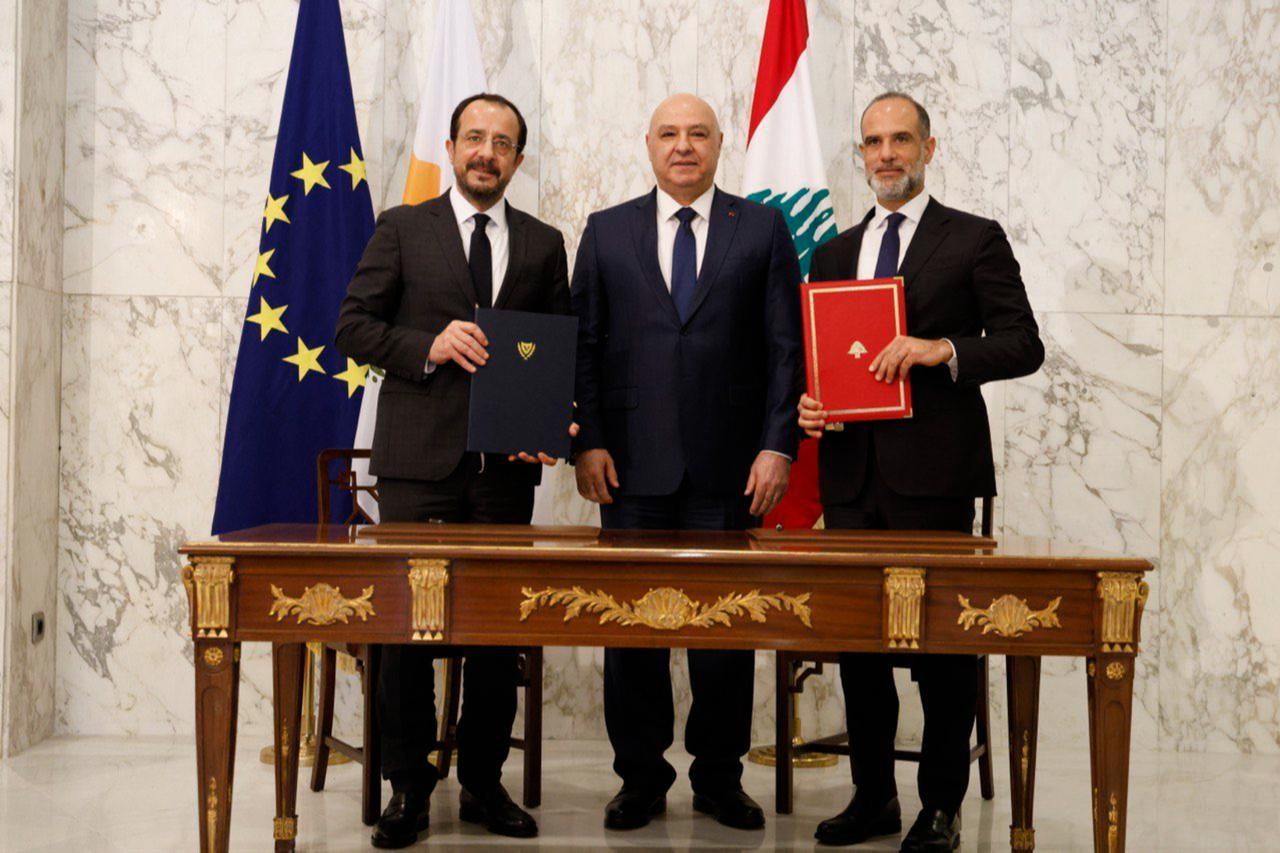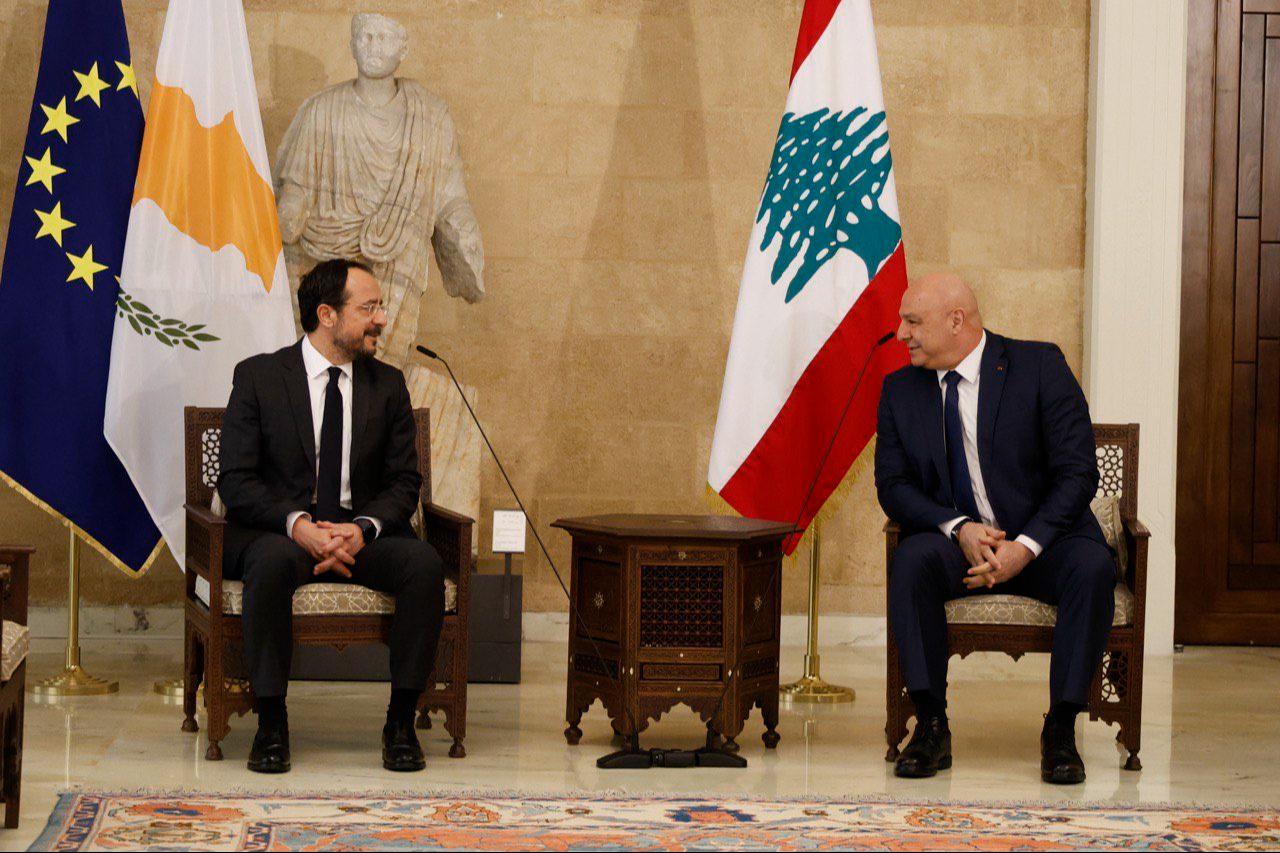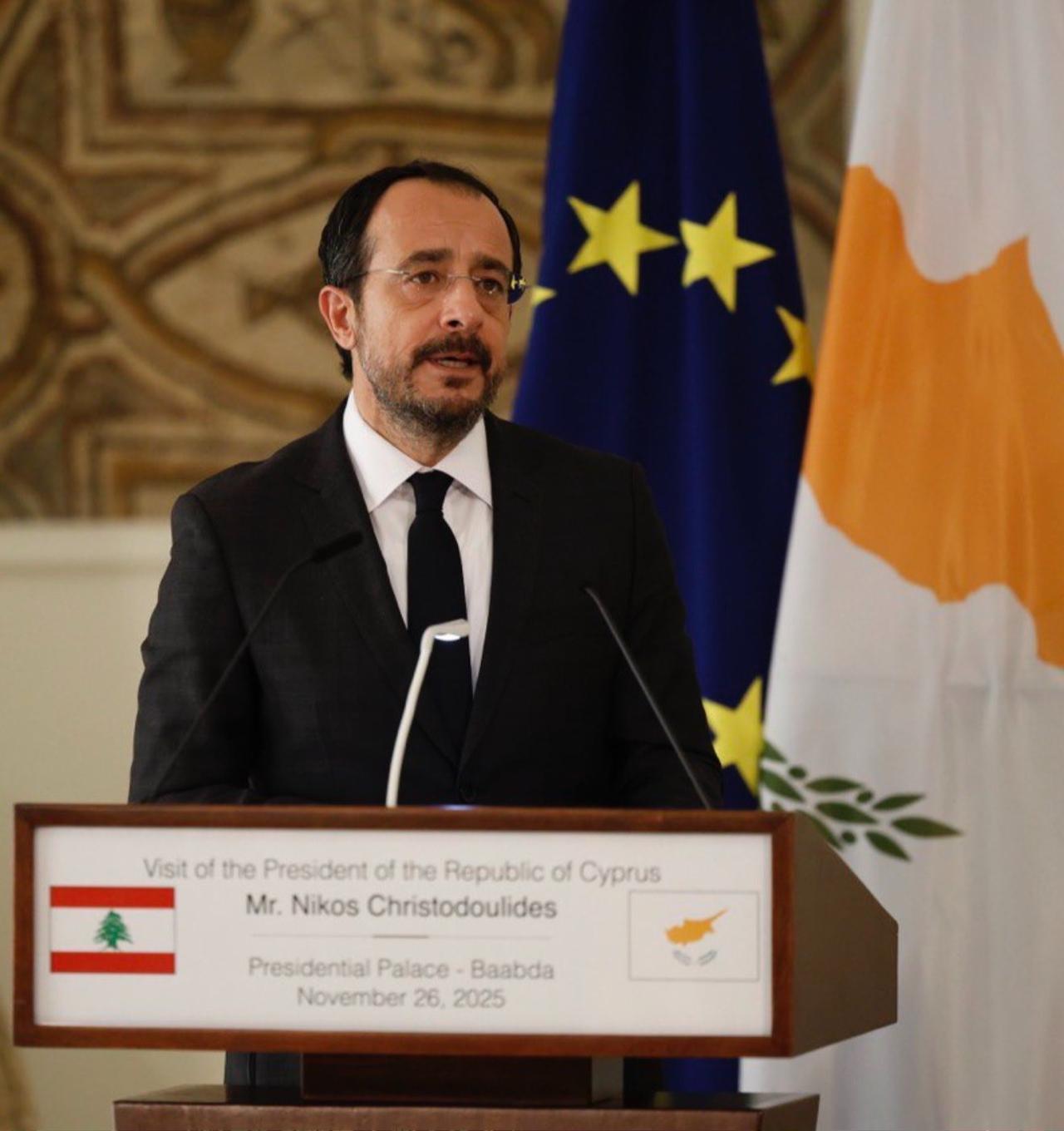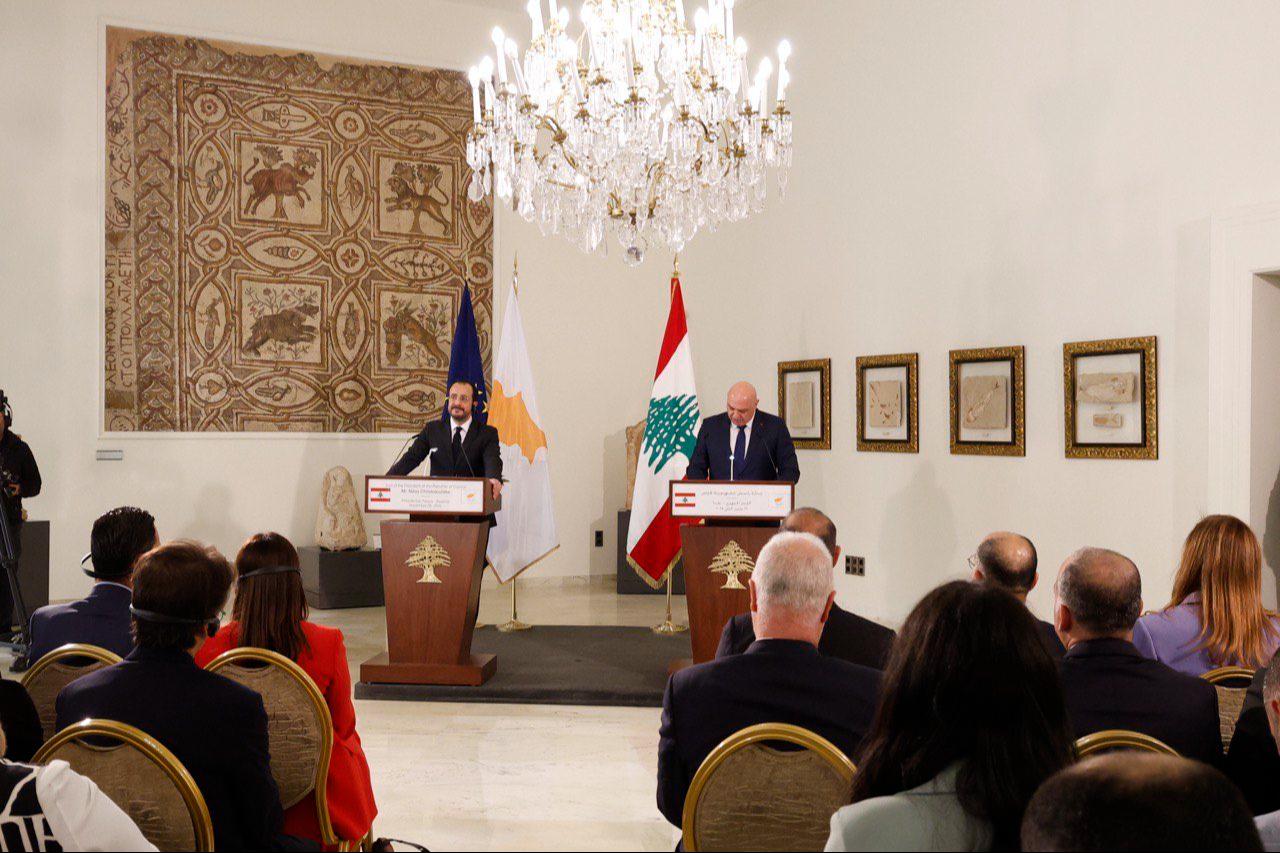
The Greek Cypriot administration has concluded a maritime delimitation agreement with Lebanon in the Eastern Mediterranean. The move disregards the rights of Türkiye and the Turkish Republic of Northern Cyprus (TRNC).
The deal updates the 2007 maritime boundary agreement that Lebanon had suspended for years.
The approval process accelerated after Lebanese President Joseph Aoun and Prime Minister Nawaf Salam discussed the issue last month. Following cabinet approval, the agreement was sent to parliament.
Greek Cypriot leader Nikos Christodoulides traveled to Beirut to sign the revised agreement.
Lebanon’s Transport and Public Works Minister Fayez Rassamni signed on behalf of the Lebanese government.
The starting point of the maritime boundary was redefined using the coordinates of Lebanon’s agreement with Israel, which was reached three years ago with US mediation.

Alongside the maritime delimitation deal, the Greek Cypriot administration and Lebanon also signed a memorandum of understanding to build an undersea electricity interconnection line between the two sides.
After meeting President Aoun, Christodoulides said, “We have completed a process that has continued for nearly 20 years. I thank President Aoun and Prime Minister Sherif. This agreement will benefit both people.”
President Aoun stated that Lebanon’s approval “was not directed against any party,” adding that both sides would now benefit more easily from natural resources in the sea.
Reports said Christodoulides persuaded Lebanon by leveraging the European Union’s €1 billion aid package.
Preparing to assume the rotating EU presidency early next year, he reportedly promised Beirut that €500 million would be released immediately.
He also committed to securing additional assistance and investment during an EU summit on the Eastern Mediterranean planned for April and pledged to advance a strategic cooperation agreement between the EU and Lebanon.

The Greek Cypriot administration has long pursued agreements that exclude Türkiye and the TRNC from the Eastern Mediterranean’s maritime arrangements.
It signed similar delimitation deals with Egypt in 2003 and Israel in 2010.
Although the 2007 agreement with Lebanon remained unratified until now, the Greek Cypriot side continued to unilaterally license offshore blocks to international energy companies.
Lebanon, which is seeking to ease its economic crisis, hopes offshore hydrocarbon exploration in the Mediterranean will generate revenue.

Following the signing of the updated maritime delimitation agreement between the Greek Cypriot administration and Lebanon, Türkiye’s Ministry of Foreign Affairs issued a statement saying the deal disregards the rights of the Turkish Cypriots, who are “an equal sovereign component of the island.”
The ministry said the agreement, originally signed in 2007 but never put into force, was revived on Nov. 26 and concerns an area outside the Turkish continental shelf registered with the UN on March 18, 2020.
Ankara stressed, however, that it approaches the issue within the context of the Cyprus question and the rights of the Turkish Cypriot people.
The statement warned that Lebanon’s or any coastal state’s signing such an agreement with the Greek Cypriot administration “directly concerns the equal rights and interests of the Turkish Cypriots.”
It underlined that the Greek Cypriot side “does not represent the Turkish Cypriots or the entire island” and therefore has no authority to make arrangements affecting the whole of Cyprus.
Türkiye called on regional states and the international community not to support “unilateral steps” by the Greek Cypriot administration and not to be complicit in initiatives that undermine the “legitimate rights and interests” of Turkish Cypriots.
The ministry said Türkiye, together with the Turkish Republic of Northern Cyprus, will continue to defend the rights and interests of the Turkish Cypriot people.